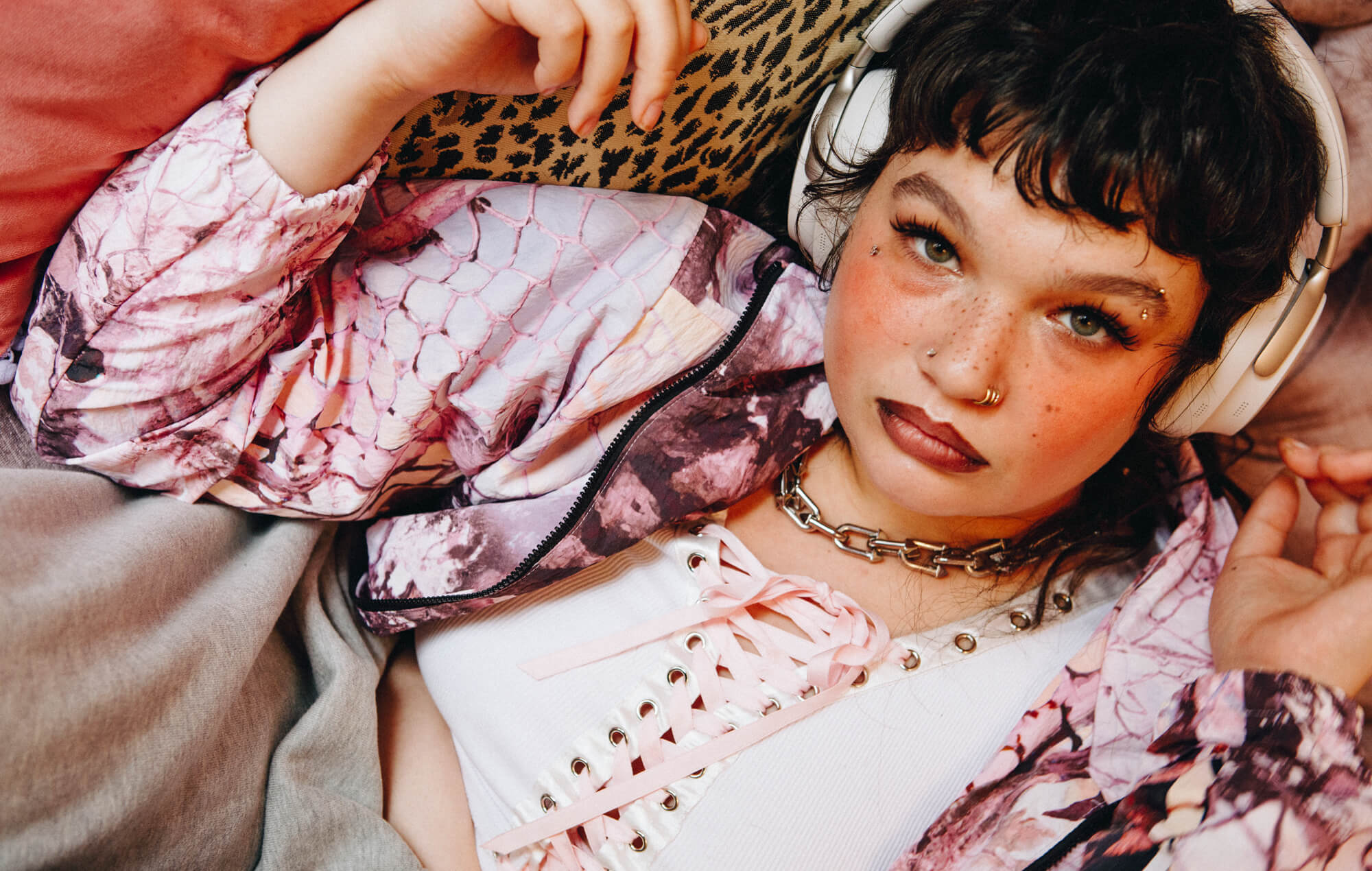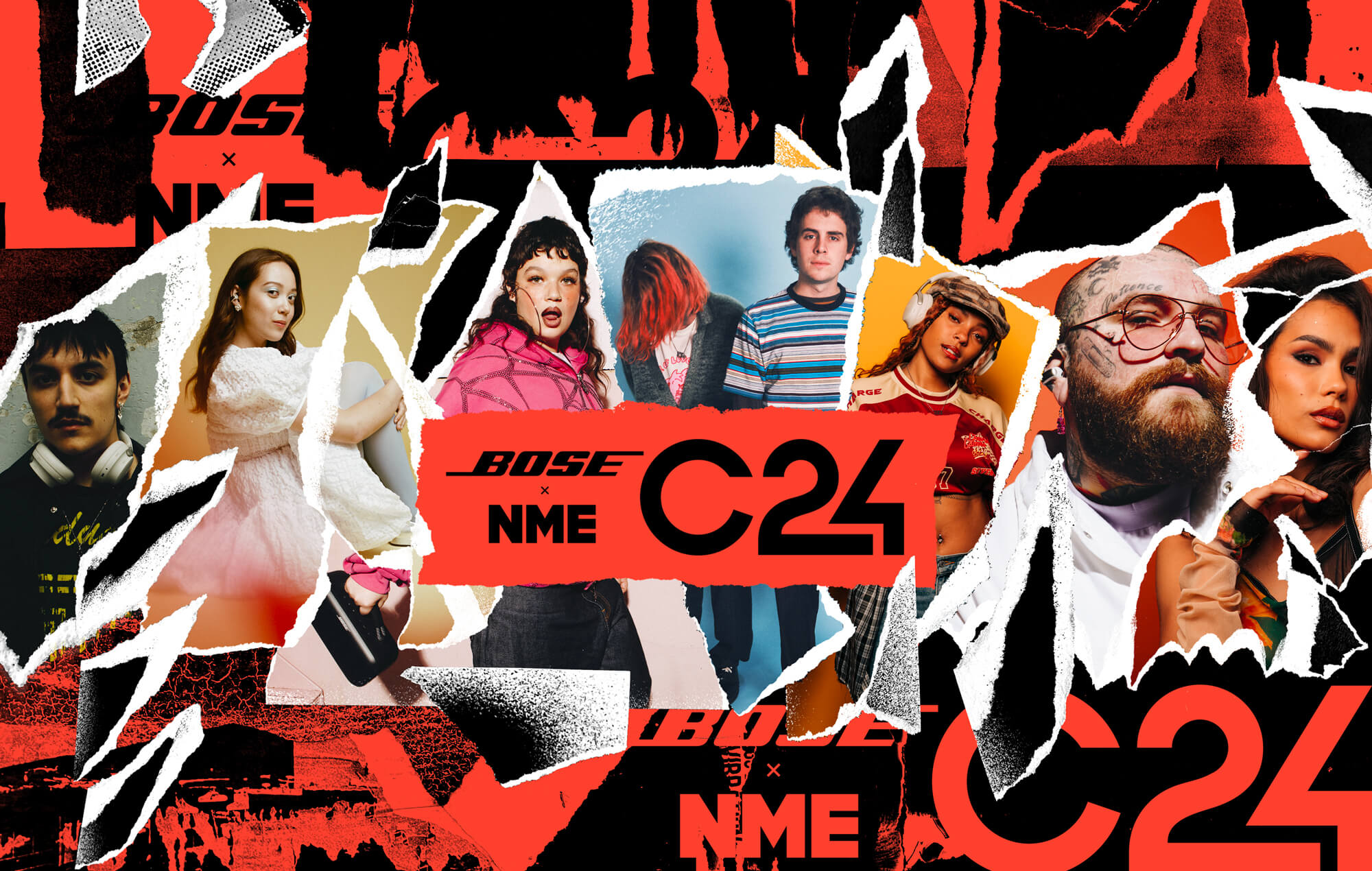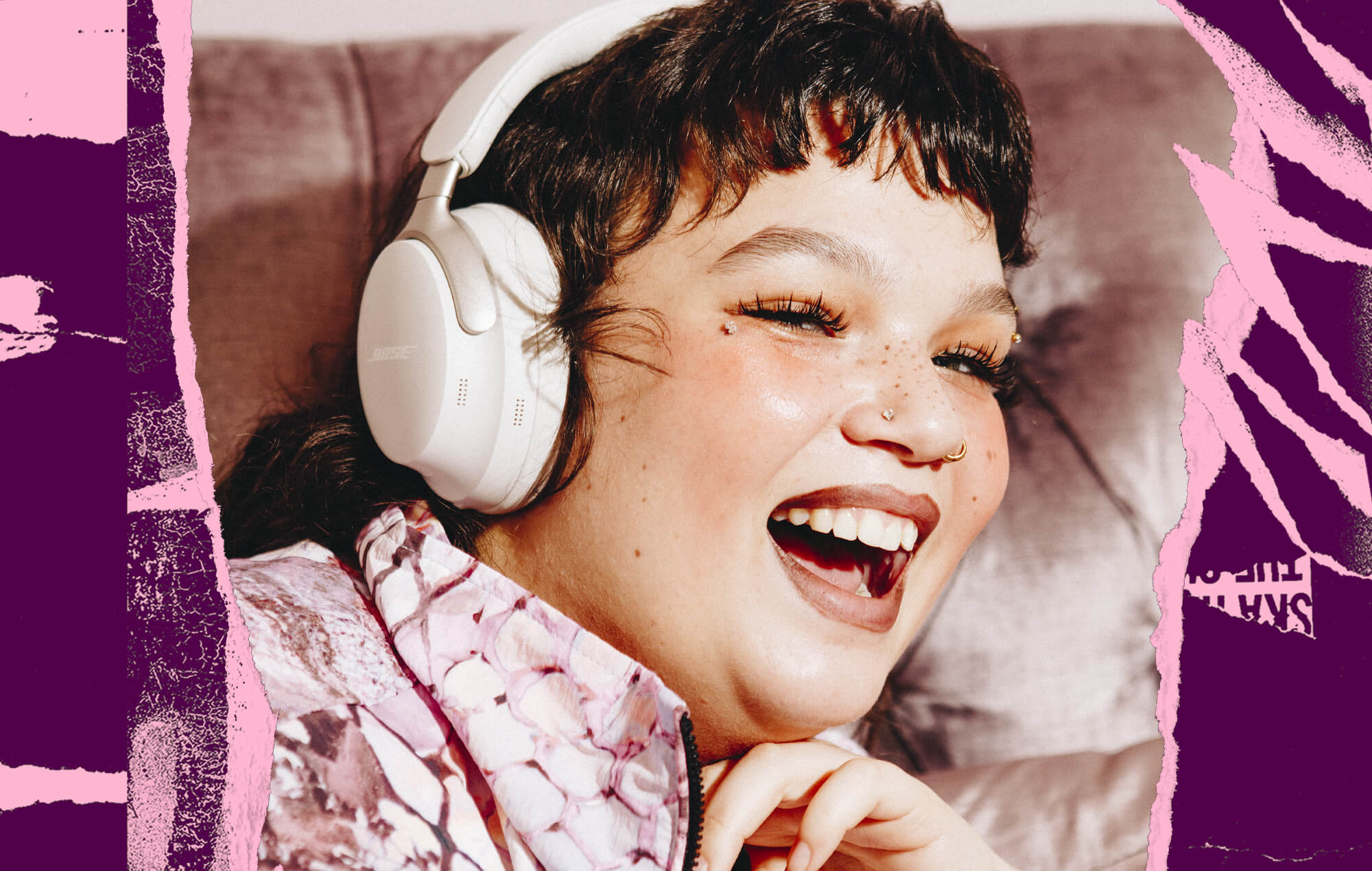On a drizzly Tuesday afternoon, Lola Young wanders the streets of London, navigating a pavement that gleams with the residue of a near-constant downpour. The spattering of unseasonal summer raindrops that still hang in the air threaten to dissolve the signature rosy blush and constellation of freckles only just painted on her cheeks for her NME photo shoot, or even saturate her newly debuted mullet. But, characteristically, she’s unbothered.
The sombre tones conjured by a deep grey sky hanging above offer perhaps an appropriate setting, given the topic of conversation. Young’s ‘I Don’t Mind’, her entry to ‘Bose x NME: C24’, exhibits a contrast to the tongue-in-cheek humour imbuing her earlier releases. “It’s about having sex with someone, to put it bluntly, and you’ve loved them before, or you still love them,” she says. “It’s about not wanting to talk about the past and that feeling of emptiness, but also being so whole when you’re with that person and feeling so safe, though wondering if it’s worth opening that can of worms.”
Perhaps her most stripped back release to date, ‘I Don’t Mind’ leans into the indie influences she’s been immersed in during the production of her debut album ‘This Wasn’t Meant For You Anyway’, drawing subtle comparisons to Pinegrove or early Arctic Monkeys. Lyrically, the song joins a canon of anthems for unrequited love built around a simple, minimal production – existing in the same gloomy vein as Frank Ocean’s ‘Self Control’ and SZA’s ‘Supermodel’.

For the first time, Young performs alone with a guitar, embellished only with simple double-track vocals captured in a couple of takes. “It’s a really personal song for me and it’s a really short song but it just tells that story, I think, quite beautifully. It’s like a diary entry; I wanted it to sound really raw and real and direct.” Young enlisted her frequent collaborators Conor Dickinson and William Brown (professionally known as Manuka) who’ve helmed much of her recent debut album, to help capture the quietness and severity needed.
“I love that element of songwriting,” Young says of her diaristic lyricism. “I think it’s so important to be open and honest, that’s always how I’ve been in my music. Sometimes they’re more of a story, or more ambiguous and metaphorical, but ‘I Don’t Mind’ feels just straight and it’s very clear what I’m talking about.”
Being part of the collaboration between Bose and NME has been an energising experience for Young, who celebrates the art of the mixtape. “I’m so obsessed with the idea of creating a mixtape that feels really authentic to each artist,” she says. “This is very curated and that’s what meant a lot to me. It’s so inspiring to be part of something that’s bigger, so I’m really excited about it.”

With a collection of releases suffused with wit and comedic one-liners poised for TikTok virality, Young’s identity as a Londoner has long been integral to her music. As a teenager she hopped around south London’s DIY venues, immersing herself in their burgeoning underground rap scenes, or trailed the streets of Camden like icon Amy Winehouse, a subject of frequent comparisons. As a teenager she attended the BRIT School and spent weekends and evenings singing in open mic nights, before eventually capturing the attention of Island Records, who signed her at age 18.
Inevitably, life in a city as competitive and chaotic as London can create a sense of needing to keep one’s guard up, yet Young argues that, recently, the city’s intensity has instilled her with a newfound penchant for vulnerability. “There’s so much culture, so much music and so many different people from all walks of life,” she says, gazing at her surroundings. “That’s so important for me: to be in an environment where people actually have lived through shit. I wouldn’t have been able to write about such personal things if it wasn’t for that.”
Drawing on an eclectic mix of sonic references, from art-pop to hip-hop and, overwhelmingly, indie, and defined by lyrics ripped from scathing text chains about exes or tear-stained diary entries, her work solidifies Young as leader of a new generation of autobiographical songwriters.
Her music offers candid confessions that outline what love and life look like for young Londoners in 2024, heralding heartbreak, mental health struggles and weed as her muses. But, most importantly, she wants her audience to identify with her songs. “I hope people respond to what I’m talking about,” she says, finally ducking out of the worsening rainfall. “I want people to think about themselves through my music.”
Stay tuned to NME.com/C24 for the latest on the return of the iconic mixtape
